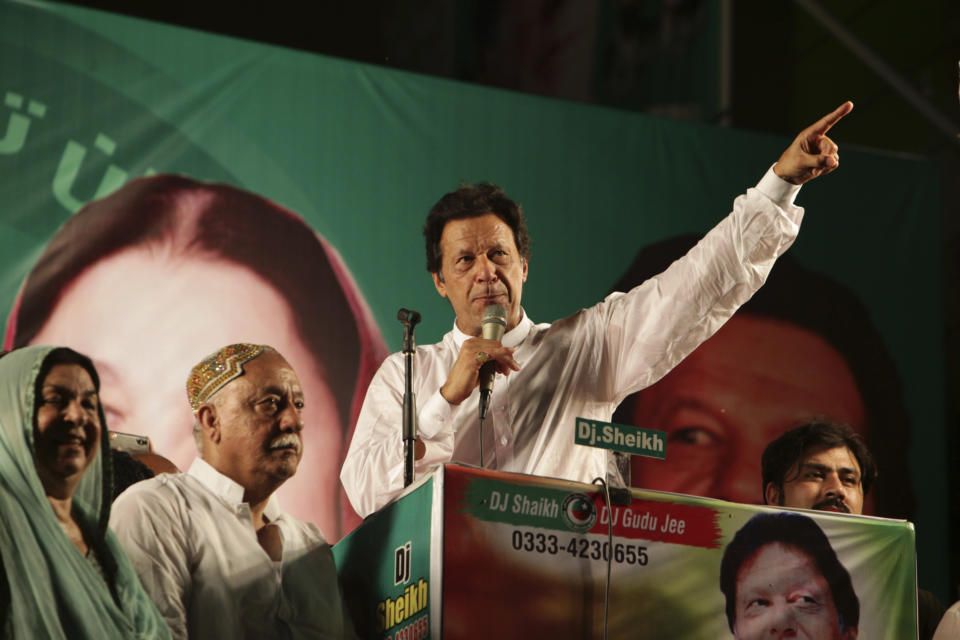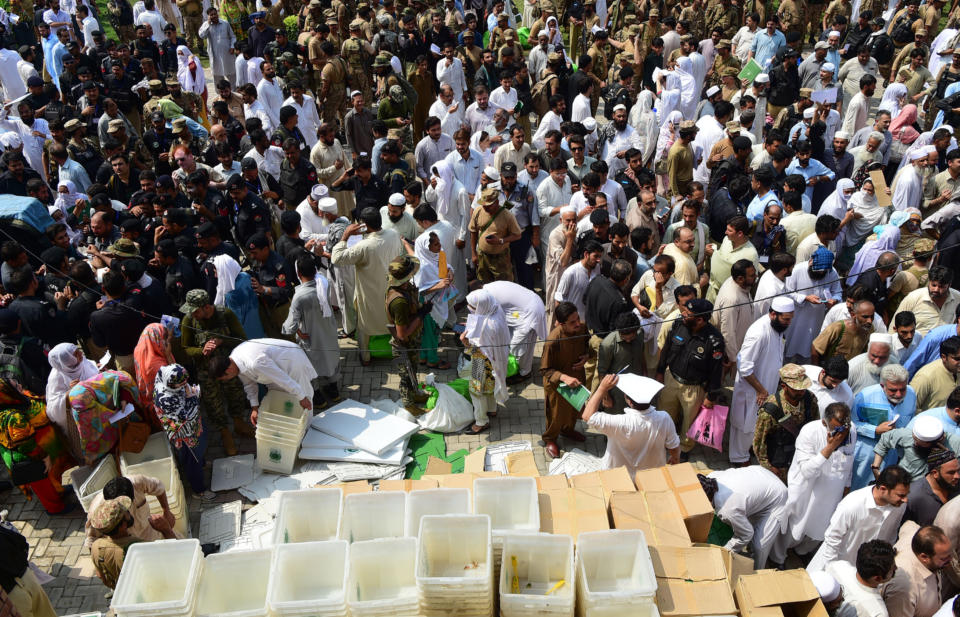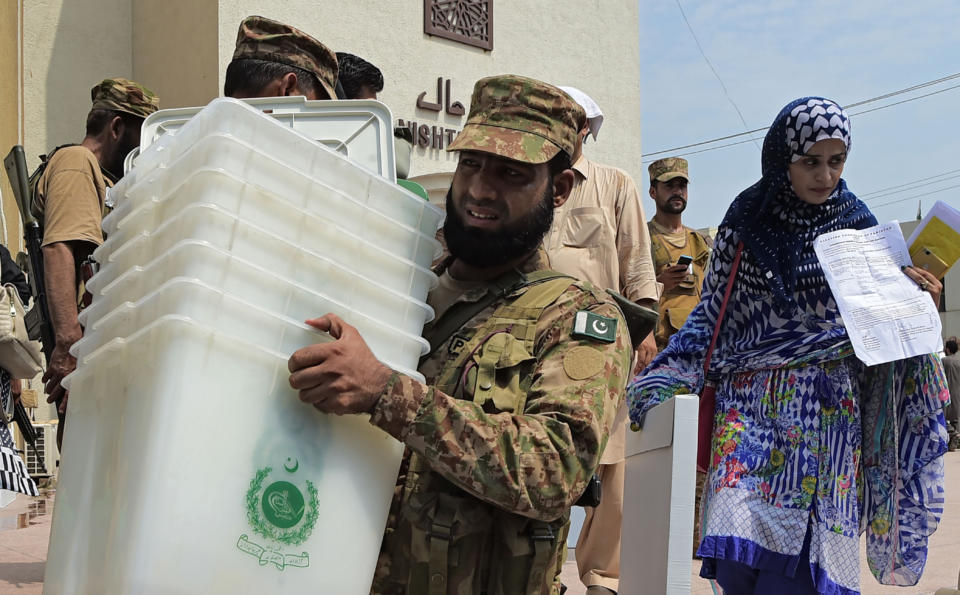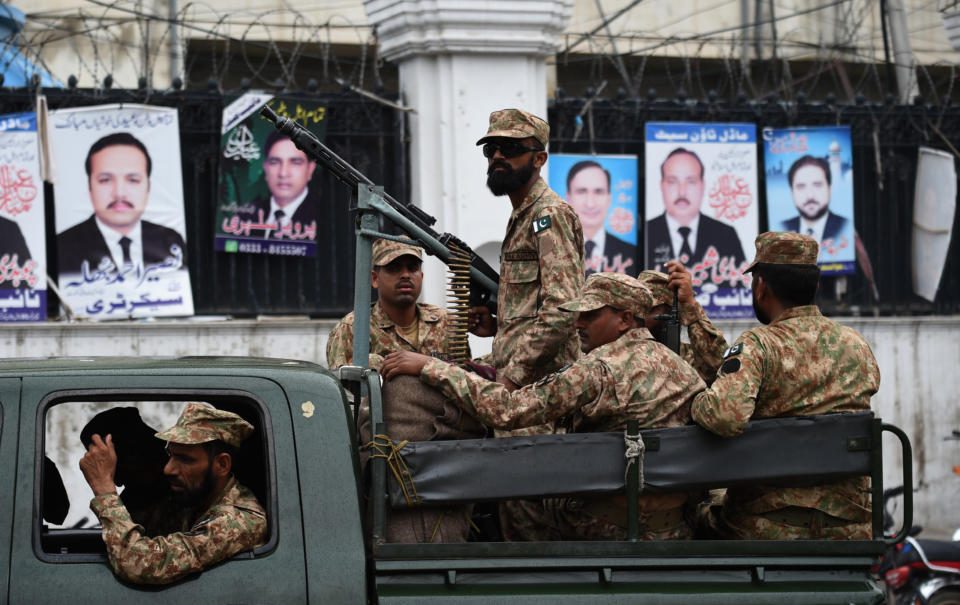Pakistan will open its polls for parliamentary elections soon. Cricket legend turned politician, Imran Khan said he’s confident of victory for his party. If elected as prime minister, he promises to drive a campaign against corruption and poverty. But as CGTN’s Danial Khan reports, catching victory may not be that easy.
Khan is a member for the Pakistan Tehreek-e-Insaf party. He has become the most popular candidate running for prime minister. He’s hoping that popularity will translate into a large number of votes.
“People will come because people are sick of corruption in this country, and they have known for a long time that the ruling elite is corrupt, specifically Nawaz Sharif, is one of the biggest corrupt politicians of Pakistan,” Khan said. “He’s got a history of corruption, there are books written on his corruption. and people will come because they realize that corruption and Pakistan can no longer go together.”

Pakistani politician Imran Khan, chief of Pakistan Tehreek-e-Insaf party, addresses his supporters during an election campaign in Lahore, Pakistan, Monday, July 23, 2018. Pakistan will hold general elections on July 25. (AP Photo/K.M. Chaudary)
According to the constitution, a prime minister has to be elected by the next parliament. Following the elections, the president has 21 days to convene the national assembly. The new assembly will then vote to elect a prime minister.
However, a hung parliament also remains a possibility. If a candidate does not win with a majority, members of parliament will have a second poll to elect the prime minister. Electing a prime minister without a majority would mean an unstable government, but that’s not new to Pakistan.

Pakistani election officials receive ballot boxes and voting materials at a distribution centre in Peshawar on July 24, 2018.
Pakistan will hold its general election on July 25. (AFP PHOTO / ABDUL MAJEED)
In 2008, the Pakistan Peoples Party came in power with coalition of many smaller parties and independent candidates. The Pakistan Muslim League, led by former prime minister Nawaz Sharif, decided to sit in opposition.
The PTI, PPP and PML-N are the three largest parties in parliament, but they are not likely to make a coalition. Two of the three largest parties sitting in the opposition will only promote instability. A significant voter turnout could help reduce the uncertainty.
Experts have said Pakistan needs a strong government to address the enormous political, economic, and security challenges that the country faces. However, it’s unclear if the people will get what they need and deserve. It will depend on what happens on polling day, with all parties hoping for free and fair elections.

A Pakistani soldier carries ballot boxes at a distribution centre in Peshawar on July 24, 2018.
Pakistan will hold its general election on July 25. (AFP PHOTO / ABDUL MAJEED)
 CGTN America
CGTN America

